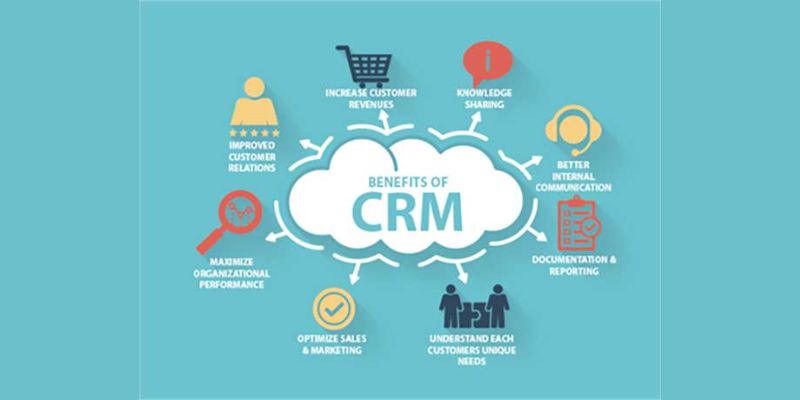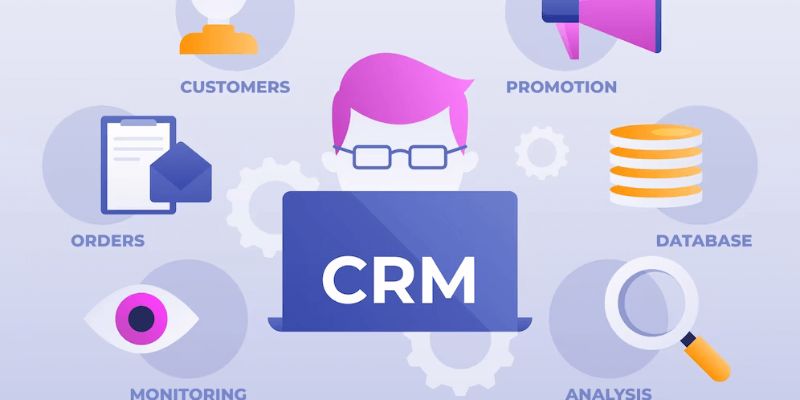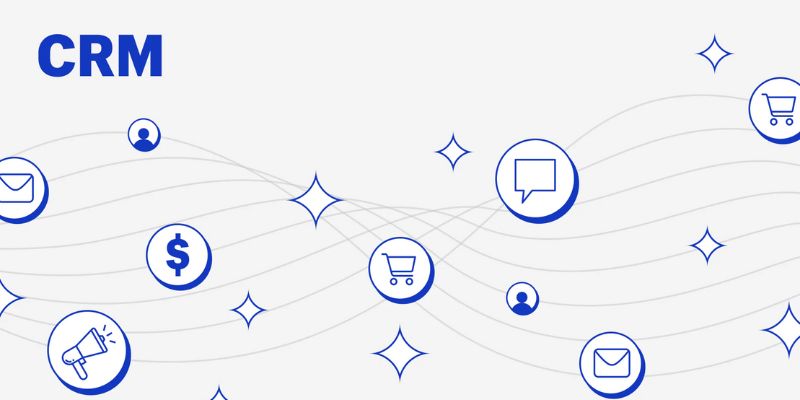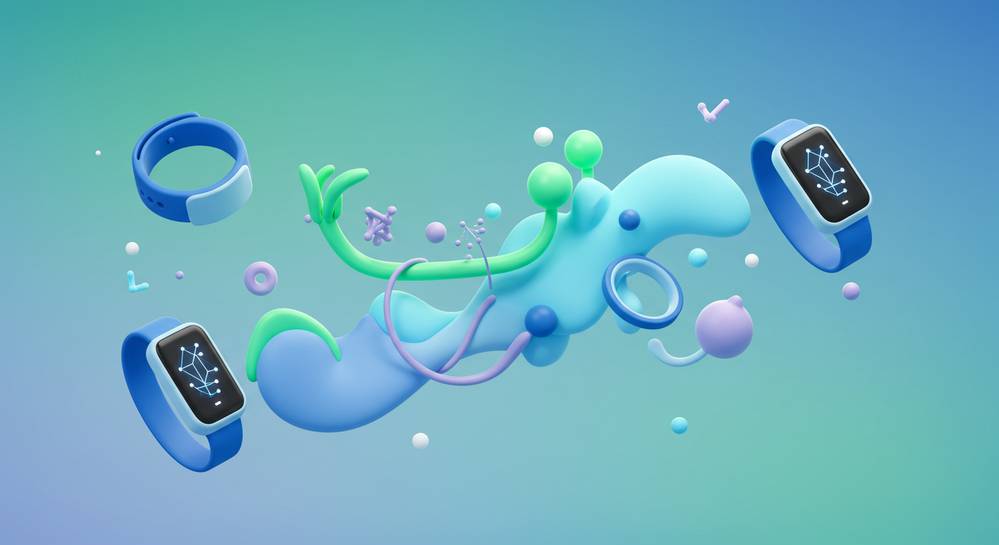Understanding the core concepts and benefits of CRM systems isn’t just about software; it’s about firing up your business growth and tying tight knots with those who matter most—your customers. Imagine a tool that tracks every sale, sorts every client, and keeps your team sharp and synced. That’s the power of a CRM. It ain’t just a fancy acronym; it’s the game-changer every business leader seeks. So, let’s break down the big wins and whip-smart ways CRM turns your company into a customer-charming powerhouse. Strap in, because we’re diving deep into the world where relationships and revenue meet.
CRM Basics: Laying the Foundation for Business Success
Understanding CRM Software Essentials
CRM software essentials are tools that help you manage customer info. They let you track sales, offer customer service, and do marketing tasks. CRM applications offer ways to store customer data. This makes pulling up customer info quick and easy. They also help teams work together better. With CRM, you can see what customers like and don’t like. This helps you improve what you sell and how you connect with them.
Exploring Customer Relationship Management Basics
Customer relationship management basics are about knowing your customers well. This means you know what they buy and what they need. You can record every chat, email, or deal you have with them in a CRM system. This gives you a clear view of each customer. You can then use this info to keep customers happy. Happy customers often come back to buy more. They may even tell friends about your business.
A CRM system is a key part of any business today. It keeps track of all your customer contacts. It helps you follow leads until they buy. Plus, it supports your sales and marketing by sharing info across teams. This makes it easier for you to sell more and grow your business.
CRM for sales growth is powerful. It helps you see new chances to make sales. It gives your sales team the details they need to close deals. And CRM for marketing integration is great too. It lets you send messages that mean something to your customers. These messages are based on what you know about each customer.
CRM data analysis digs through all the info you collect. It finds patterns so you can make smart decisions. Let’s say many customers ask for a product in blue. You could then plan to make more blue products. This way, data analysis guides you to meet customer wishes.
Contact management systems are part of a CRM too. They let you see every detail about your contacts in one place. This helps your team know who they are talking to. And, they can offer help that fits each customer.
Sales leads tracking is another feature to look for in CRM. This tool helps you keep an eye on potential customers. You can see which leads might buy from you soon. And, you can make sure no one is forgotten.
CRM automation features save time by doing tasks for you. For example, they can send a thank you email after a customer buys something.
Customer service improvement is another big win with CRM. Quick access to customer histories enables better support. This boosts how customers see your brand.
CRM technology adoption can seem tricky. But, with the right training, staff can learn to use it well. And remember, CRM doesn’t just help your business. It makes buying from you better for your customers too. They get what they want faster, and it feels like you really know them. That’s the magic of personalization via CRM.
CRM user interfaces should be easy to use. Staff should feel at ease when using the system. Also, CRM mobile access means they can use the system even when out of the office.
CRM cloud solutions let you get to your data from anywhere. This is handy if you have teams in different places. Plus, it’s often safer and costs less than old-style software.
Understanding CRM is like putting together a big puzzle. Each piece makes your business sharper and more connected to your customers. Get these basics right, and you’re on your way to CRM mastery!

Amplifying Business Operations: CRM System Functionality and Advantages
Navigating Through CRM System Functionality
Do you know how a CRM system works? Think of it as a smart toolbox for your business. It stores your customer info. It helps your team keep track of sales leads. Plus, it makes customer service better. Big or small, any business can use CRM for growth.
So, what is CRM software’s key job? It saves and manages your customer details. From names to sales history, it keeps all in one place. This makes your work easier. You see, its got contact management at its heart. This means all your customer data, it’s easy to find and use.
CRMs also have automation magic. They take on jobs like sending follow-up emails. That saves your team a lot of time. They can do more important work. Also, CRM software helps with sales leads tracking. Team knows who to talk to and when, to make a sale happen.
Customer service can get a big help from CRM too. How? With a CRM, team has customer info handy. No need to ask customers to repeat their story, right? This makes customers happy. And happy customers, they come back for more.
Need to work while you’re out? No sweat. Many CRM tools work on your phone. So, your team can keep up with work from anywhere. That’s CRM mobile access for you!
Highlighting Key CRM System Advantages
Now, let’s chat about the good stuff CRM brings. First up, it helps you sell more. With CRM for sales growth, you track every deal. Knowing what your customer likes, you can offer just that. Next, you get to really know your audience. CRM data analysis shows what customers want. Then, you use that to make offers they can’t say no to.
CRM also ties your team’s work together, especially in sales and marketing. That’s CRM for marketing integration. Team has one view of the customer. Marketing knows what sales is up to. Sales knows what marketing is sending out. It’s like a dance where everyone’s in step.
Think about how you talk to different friends. You don’t chat the same way with all, right? CRM helps you to talk to customers in ways they like. This is personalization via CRM. It shows customers you get them. That means a lot. And it helps keep them around.
Good CRM tools help you see how you’re doing too. They have CRM reporting tools. These show you charts and graphs of your progress. It helps make smart choices for your business.
CRM tech can grow as your business does. That’s CRM scalability. It’s good to know you won’t outgrow your CRM tool fast. And if you ever get stuck, there’s staff training to help your team use CRM better.
In short, a CRM system makes your work smoother. It supports your team. It helps to make your customers glad. That’s a lot of wins in one tool, don’t you think?

Transforming Strategies: CRM’s Role in Sales, Marketing, and Data Analysis
Streamlining Processes with CRM for Sales Growth and Marketing Integration
Imagine your sales team nailing every lead without losing details. Yes, it’s possible. CRM makes it happen. This tool brings your sales and marketing teams together. It’s like a super glue, but for work. Now, you get real teamwork with shared goals. Everyone sees what’s going on, from first contact to that winning sale.
So, what’s CRM for sales growth exactly? It’s like a smart buddy who remembers every customer’s likes and wishes. This means no more “Oops, I forgot!” moments. Your sales go up, and customers smile more. It’s a win-win.
But wait, there’s more! With CRM for marketing integration, your teams can craft messages that hit the bullseye. They make sure the right eyes see your ads and offers. Guesswork? Gone! Just smart moves backed by solid data. It’s like knowing exactly what every customer wants, even before they do.
A great CRM system works quiet yet powerful. It quietly tracks sales leads and keeps your customer data tidy. Its contact management system keeps every name and number safe and sorted. And get this – CRM automation features take the boring stuff off your plate. They do tasks while you focus on big ideas.
Having it all connected means you know what works. This reduces waste and amps up what brings in cash. It’s like having a secret map to the treasure. And with CRM, the treasure is happy customers who keep coming back for more.
Leveraging CRM Data Analysis for Actionable Insights
All those customer chats and decisions, it’s all gold. But without a tool to make sense of it, it’s like gold buried in your backyard. You know it’s there, but you can’t use it. Enter CRM data analysis. This smart feature turns raw info into clear tips that guide your next move.
CRM reporting tools give you reports that are actually useful. You see patterns and trends. It’s like a cheat sheet for business. You learn what your customers love and what they don’t even glance at. Knowing this, you can make stuff they can’t wait to buy.
“Ah, but what about tough tasks?” you might ask. Well, a CRM user interface keeps it smooth. It’s easy on the eyes and simple to use. Everyone on your team, from rookies to pros, can jump in without a hiccup. Need to check on something while out and about? CRM mobile access has you covered.
The best part? CRM doesn’t stay small. It grows with you. From a tiny shop to a big company, it scales. Just like that plant in your office. Slow and steady. But here’s the kicker – CRM helps you keep those customers. Because with CRM analytics, you not only catch their eye, you keep it.
CRM technology is your secret sauce for sales, marketing, and smart decisions backed by data. It’s your compass, map, and friendly guide all rolled into one. It tackles today’s tasks while planning for tomorrow’s wins. And who doesn’t want that?
Roll up your sleeves, because with CRM, your team becomes a well-oiled machine, making sales, keeping customers happy, and leading the way. With CRM, you’re not just running a business. You’re leading a charge towards success.

The Road to CRM Mastery: Implementation, Customization, and Training
Overcoming CRM Implementation Challenges
Rolling out a new CRM system is a big deal. It touches almost every part of your business. So it’s common to face some hurdles. What are some CRM implementation challenges? Often, they involve getting staff on board, figuring out data transfer, and the cost to start.
Your teams may resist change. They’re used to old ways and might fear new tech. Keep things simple. Show your staff how the CRM makes their jobs easier. You can win their trust and eagerness. Data transfer can be tricky, too. You need to move info without losing it. Take time to check and double-check data as you shift it over. Costs may seem high at first. But remember, a good CRM pays off by boosting sales and improving customer service.
Customizing CRM Solutions and Training for Optimized Usage
Each business is its own world with unique needs. That’s why cookie-cutter CRM won’t do. What are CRM customization options? They let you tweak the system to fit just right. Whether it’s sales tools, reports, or user dashboards, you can adjust them. And here’s the juicy part: when your CRM fits like a glove, productivity soars.
Training your staff is just as key to CRM success. How does CRM training for staff work? It’s not just a one-time thing. Think of it as an ongoing class where your team gets more skilled over time. Start with the basics. Then gradually introduce advanced features. Offer lots of support along the way.
By now, you’re likely asking: What benefits do these efforts bring? When your crew knows the CRM inside out, magic happens. They work more efficiently and help customers better. Plus, they start to see all sorts of ways to improve things.
A perfect CRM setup is powerful, but it’s not an overnight thing. You gotta face challenges head-on, tweak the system, and keep the training wheels on until everyone’s riding confidently. This process is the bridge between a costly tool and a powerhouse that revs up your business engine.
In this post, we dug deep into CRM and why it’s key for your business. You now know that CRM software is essential and how it can shape every part of your company. We discussed its advantages and how it boosts your business operations. We also looked at how CRM tools help you sell more and market better, thanks to clean data and smart analysis. Lastly, we went through how to start using CRM in your work, how to make it fit your needs, and how to learn it well.
I believe that mastering CRM can really change the game for your business. It’s not just about keeping track of customers; it’s about growing your sales, refining your marketing, and making smart moves based on solid data. With the right approach and a bit of effort in customization and training, CRM can lead you to business wins you never thought possible. Start now, keep learning, and watch your business soar!
Q&A :
What are the fundamental principles of CRM systems?
Customer Relationship Management (CRM) systems are built upon several core principles, including customer data integration, interaction management, and customer lifecycle engagement. By centralizing customer information, CRM systems enable businesses to provide a personalized experience for each customer, streamline sales and marketing efforts, and improve customer service across multiple channels.
How do CRM systems enhance customer interactions for businesses?
CRM systems enhance customer interactions by providing a comprehensive view of customer behaviors, preferences, and history, which allows businesses to tailor their communication and services effectively. These systems also automate routine tasks, which frees up time for meaningful, personalized customer engagements. The timely, relevant, and personalized interaction facilitated by CRM systems can lead to increased customer satisfaction and loyalty.
What are the main benefits of implementing a CRM strategy for a company?
Implementing a CRM strategy can offer a wealth of benefits, including improved customer retention rates, increased sales, and more efficient lead management. With a solid CRM strategy, companies can create targeted marketing campaigns, better understand customer needs and value, and make data-driven decisions that drive business growth.
Can CRM systems improve sales performance and, if so, how?
Yes, CRM systems can significantly improve sales performance by streamlining the sales process, from lead generation to closing the deal. By consolidating customer data and interactions, sales teams gain valuable insights that help them prioritize leads and personalize their approach. Additionally, CRM tools can automate aspects of the sales cycle, reducing the time spent on administrative tasks and allowing sales teams to focus on building relationships and closing sales.
What’s the role of CRM in customer lifecycle management?
CRM plays a pivotal role in managing the customer lifecycle by tracking customer interactions from the initial contact to post-sale support. Implementing CRM strategies helps businesses nurture leads into customers, encourage repeat purchases, and build long-term customer loyalty. Moreover, by analyzing customer lifecycle data, companies can identify opportunities for upselling, cross-selling, and improving the overall customer experience.



